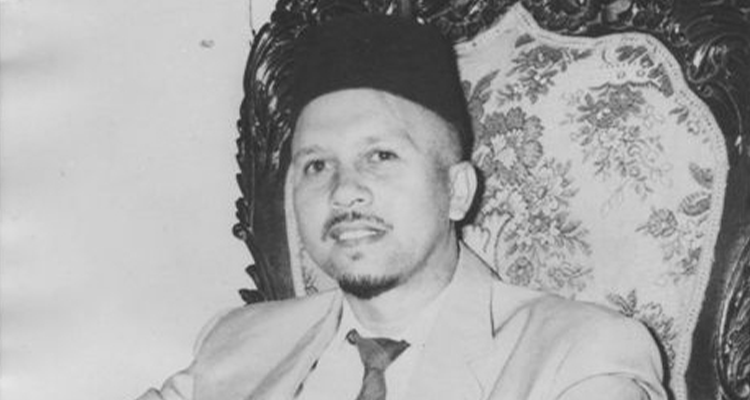The late Imam Abdullah Haron Photo Foundation for Human Rights
South Africa – “In situations such as this, nobody who has ever encountered it, can ever efface, can ever erase in any way, the pain or cause it to become less as compared to the day it had happened,” Professor Muhammed Haron reflected, his voice heavy with the weight of 54 years since the Apartheid police took his father’s life, and the ache endures.
On 27 September 1969, after being kept in solitary confinement for 123 days, and subjected to daily interrogations and torture, Imam Abdullah Haron was killed while in police captivity. His demise was not merely the theft of a husband from his wife or the cruel deprivation of a father from his children; it was an irreparable loss inflicted upon the world. It snatched away a remarkable soul, one with the potential to leave an even more profound imprint on the community and the broader Muslim world, a potential forever extinguished in the depths of despair.
His death, his sacrifices, was not in vain for it paved the way for a free South Africa and inspired countless others.
The legacy of Imam Abdullah Haron
Imam Haron’s life mission as a devout Muslim extended beyond religious duties. It was rooted in a steadfast commitment to extending a compassionate hand to those in need, irrespective of their backgrounds. His selfless endeavours encompassed the distribution of aid to the families of political detainees who found themselves destitute in the absence of a breadwinner due to incarceration.
As the years unfolded, Imam Haron’s stance towards the government’s policies grew increasingly critical. Sometime during the 1950s or 1960s, he discreetly engaged in clandestine anti-Apartheid activities. In a poignant testament to his commitment, he shielded his family and congregation by maintaining the secrecy of his political actions, rendering a comprehensive account of his involvement in such operations elusive. Nonetheless, it is documented that he forged close connections with the African National Congress (ANC) and the Pan Africanist Congress (PAC), both organisations prohibited at the time, as well as the Black Sash—a non-violent legal welfare movement spearheaded by dedicated women volunteers.
Beyond his role as an Imam, Imam Haron worked as a sales representative for the confectionery company Wilson Rowntree. This profession afforded him access to and from the segregated black townships in the Western Cape during an era when such movement was restricted. Given the PAC’s heightened activity in the region at that time, his compassionate mission brought him into contact with PAC political leaders. These interactions led to his involvement in delivering essential supplies, including food and financial aid, to individuals in Nyanga and Gugulethu.
SMread: Commence – Al Aqsa Tour Visiting Jaffa and the Al Aqsa compound
Imam Abdullah Haron’s death: A painful memory
It took years for his children, including Muhammed and Fatima Haron-Masoet, to speak openly about the painful and unforgettable days surrounding their father’s life and death. In 2006, Muhammad shared his painful wounds and experiences in an article for Muslim Views, shedding light on the deeply personal and agonising aspects of their family’s journey.
“I felt it necessary just to do so [write the article] partly because there are many of these feelings that one bottles up keeps within oneself. The thought was just to share those at that moment and not earlier. Now that we look back at that time we basically continue to experience these internal pains but at the same time it’s now publicised. It’s shared with others.”
Fatima, too, sought solace in the written word to convey her emotions. In a poignant letter entitled “Dearest Daddy,” penned as an address to her father, she bravely recounts the heart-wrenching moment when the family received the devastating news of her father’s passing. Muhammed, who was just 13 years old at the time, had to face the shock of learning about his father’s death in custody. The memory of that moment remains vivid, a haunting image of the house where they lived and the unexpected arrival of the bearers of tragic tidings. It was a pain that their mother, too, had to bear, one that left an indelible mark on the entire family.
“I cannot talk to you about my mother’s internal pain but we could see it. We could feel it, we could notice the response she basically gave at the time and of course that in itself is indescribable. One cannot put into words the feelings that go through one. As children it was indeed an encounter that remains unforgettable.”
Celebrating the life and legacy of Imam Abdullah Haron
Muhammed has been working on a biography about his father for many years now. The biography is set to delve into the personal experiences and emotions of the family. Tonight night, an event to commemorate the 54th anniversary of Imam Haron’s death will take place. It is set to be a meaningful gathering, featuring iconic individuals, such as Farid Sayed and Zubeida Jaffer, who can offer unique insights into Imam Haron’s life and legacy.
The pain endured on September 27, 1969, by Imam Haron’s family remains an unrelenting ache, untouched by the passage of 54 years. The murder of Imam Haron, at the hands of Apartheid police, was a searing injustice that continues to cast its long shadow. Yet, amid the sorrow, Imam Haron’s legacy of compassion and unwavering support for those in need continues to shine as a beacon of hope. His clandestine anti-Apartheid efforts, his connections with banned organisations, and his selfless acts in defiance of segregation laws stand as a testament to his unwavering commitment to justice. The upcoming biography and commemorative event serve as fitting tributes to a man whose impact continues to resonate through the ages.
